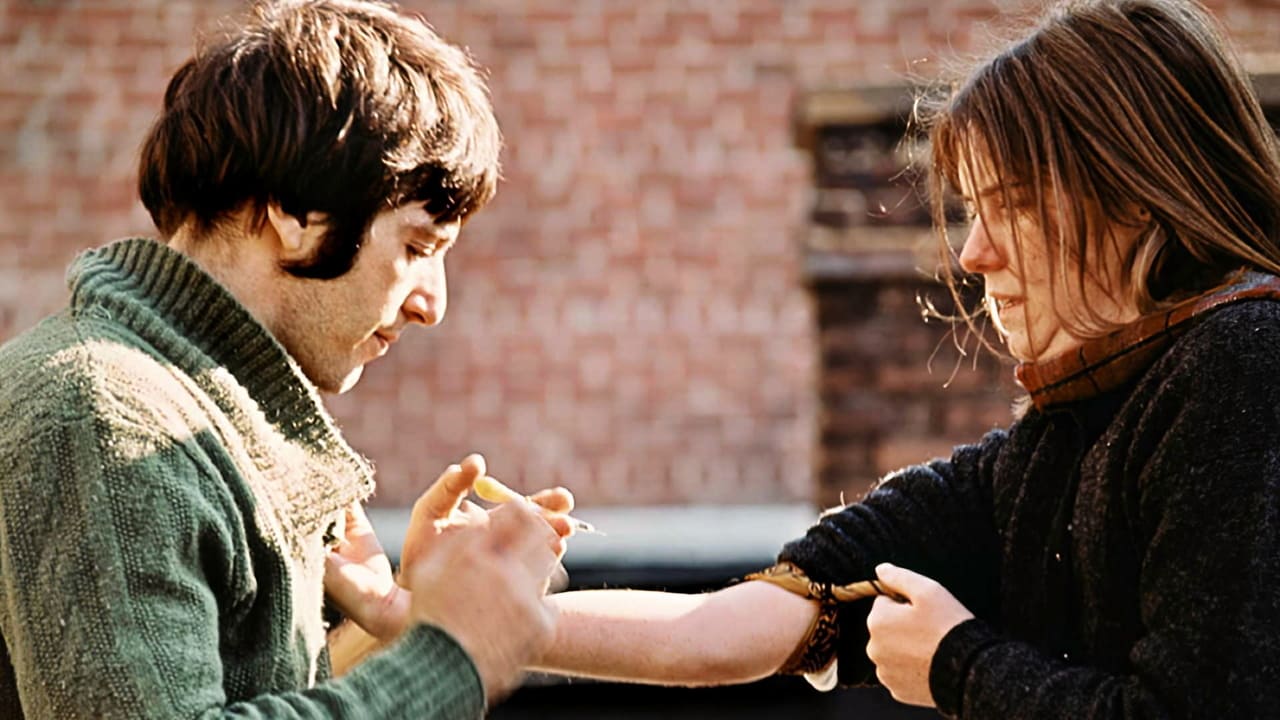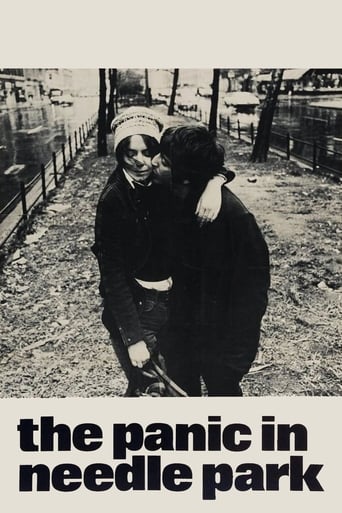Protraph
Lack of good storyline.
Comwayon
A Disappointing Continuation
Doomtomylo
a film so unique, intoxicating and bizarre that it not only demands another viewing, but is also forgivable as a satirical comedy where the jokes eventually take the back seat.
Bluebell Alcock
Ok... Let's be honest. It cannot be the best movie but is quite enjoyable. The movie has the potential to develop a great plot for future movies
dougdoepke
The storyline's about as close to two hours of sheer futility that I've seen. One thing—don't see it if you're at all depressed; I think I counted two smiles from actress Winn the entire time. But then she and fellow junkie Bobby (Pacino) have little to be happy about. Sure, they love each other, at least during their sober moments. But those moments are really just preludes to shooting up again. All in all, life's a teeter-totter ride. So which is going to win out— love or dependency. It's a harrowing descent for Helen (Winn). She starts off conventionally enough, until Bobby's fast life pulls her into sharing his heroin addiction. Then it's a treadmill to nowhere, from getting money by any means to feeding the never-ending bodily demand. Thus, the lovers can never be sure who's talking—the affectionate person, or the drug's long shadow. At the same time, trust in others can never be a certainty, even among lovers. It's a grim portrait of human relationships, to say the least.In my book, Winn deserves some kind of award for winning us over with troubled vulnerability. Thus, her tumble into personal desolation pulls us along. Pacino too is outstanding, though not nearly as sympathetic. Still, the way he maneuvers among the jungle of addicts and drug money is totally convincing. I can see why the role launched his A-picture career. Also, the NY city locations lend a further sense of realism, though I could have used more of the down-and-out street characters.Overall, I suspect PiNP is the best movie made about the seductive ravages of hard drugs. In fact, I think I'll open my medicine cabinet and check the prescription drugs.
jimbo-53-186511
One problem with this film lies with how it's structured; to me it has a very 'episodic' feel about it whereby it seemed to be filmed in lots of short segments and each segment gradually moves the story along. You may think at this point 'Hey what's wrong with that?' That's how a normal narrative works - yes it is, but the problem with this film lay outside the basic narrative.Another big problem with this film lies with its very poor development of characters; Bobby & Helen are the two main characters and throughout the entire running time we learn very little about them. As mentioned there are lots of little scenes between Bobby and Helen, but the writers never allow us to learn much about them meaning that you always feel as though the writers are keeping Bobby and Helen at arms length from you. The same thing can be said of the story and due to the rather 'episodic' nature of the film, I found that the writers tended to move from scene to scene without really developing the characters or offering any real commentary. I expected the film to be thought-provoking, insightful or perhaps even moving, but I honestly felt cold & unattached from the film as a whole. Characters one minute would be at death's door (Bobby's OD'ing scene) and then in the next scene they would be fine giving the audience nothing to reflect upon. Aside from Al Pacino's OD'ing scene I never felt as though the characters were suffering from the effects of drugs and never felt as though they were in much danger - which again just made me more and more uninvolved as the film progressed.The only positives I can draw from this film come from the performances of Al Pacino and Kitty Win who clearly did the best that they could with what they had to work with. I really disliked this film and the rather abrupt ending was also quite strange. Requiem for a Dream is a much better film tackling a similar theme and you'd be better served watching that film.
spelvini
Episodic and sad, The Panic in Needle Park as a pitiful slice-of-life character study stands out amongst the other drug films of the 70s in its nuanced unfolding narrative of two hapless New York addicts and their ability to survive and stick together under the weight of Police tensions and their own faults.The excellent Kitty Winn is outstanding in the role of the sensitive artist Helen, who falls in love with Al Pacino's drug-addicted, petty criminal Bobby. Winn won the award at Cannes that year for her performance, and looking today, it's still as edgy as it was back in 1971. Pacino pretty much over-plays his part as the antagonist, and functions to support Winn's presence in the film.Joan Didion and John Gregory Dunne based their script for the film on James Mills's reportage that was based on a photo spread about a drug-addicted couple that spent their days in Needle Park between pilfering and hustling for their next fix. The films gritty subject matter never sinks to the scatological, but rather, in the prose of Didion, and Dunne retains an elegiac sense.Director Jerry Schatzberg never allows the truth of images to become fuzzy, sticking to a clear documentary-like capturing of action. The camera lingers on characters injecting heroin after preparing the drug, and the images could function as a how-to video in some instances. The complete absence of any music track to indicate to the viewer what they should feel allows a deep sense of truth to burn through the screen.This is the film that Francis Ford Coppola showed to Paramount to convince them that Al Pacino was suitable for the role of Michael Corleone in The Godfather. And in retrospect we can see that Pacino possesses a strength that is core to his persona, and certainly something that Coppola relied on to carry the central character of his film.This is not Pacino's best performance but his overbearing screen presence counters Winn's subtle nuanced creation of a woman eroding into human detritus. The film also captures much of the spirit of New York of the early 1970s, when the use of drugs was a relatively unsophisticated activity, very different from much of the condoned abuse that is tolerated today.Watch this film for excellent examples of film performances, and techniques that really don't exist anymore with the present crop of performers coming out of the acting schools. Winn retired too early after Panic brought her accolades, and Pacino continues to work on stage and in film, as his is the kind of acting that can be consider the finest of the period.
kylebristol12
Jerry Schatzberg's "The Panic in Needle Park" is an incredibly well-made film, a major overlooked example of New Hollywood cinema. Al Pacino and Kitty Winn star as lovers Bobby and Helen who live in the city and who are addicted to heroin. The film is shot like a documentary, uses no music, and features some very disturbing, realistic scenes of heroin injection. There have been countless American movies that feature drug use, but "Needle Park" stood out to me. It isn't dated because much of the film's run-time focuses on Pacino and Winn (both in extraordinary performances) and how their relationship disintegrates because of their addictions. The final scene of the film is so bleak and haunting.

